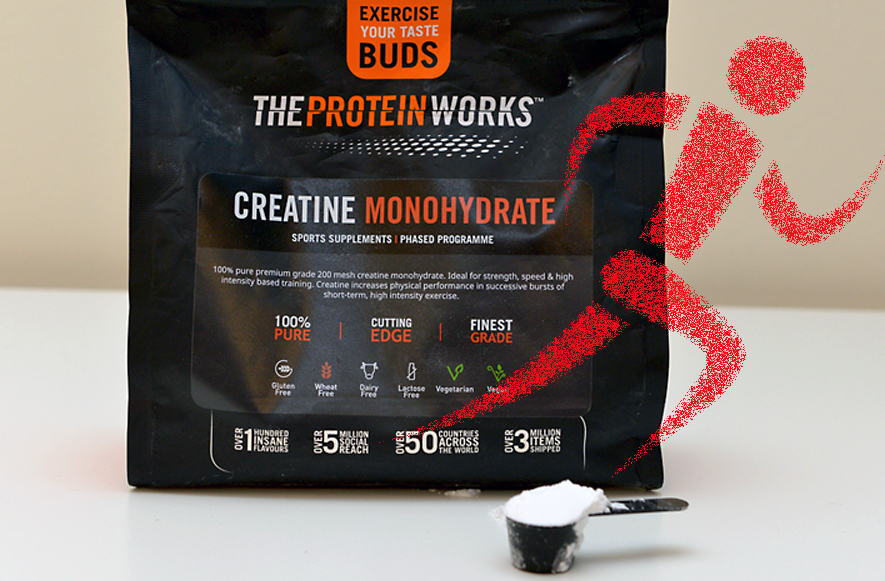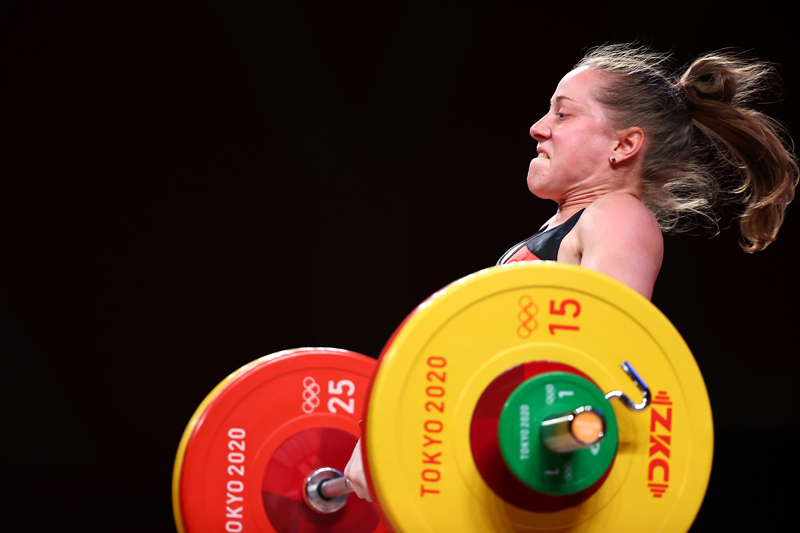You are viewing 1 of your 1 free articles. For unlimited access take a risk-free trial
Optimising fluid balance: nailing the caffeine dehydration myth

Andrew Hamilton explains why caffeine is no longer the enemy when it comes to hydration.
Asking athletes to change their drinking patterns can lead to problems
Athletes of all levels are often advised by sports scientists, dieticians and coaches to avoid caffeinated beverages in favour of water or other caffeine-free drinks. Such advice extends to the general public, too. For example, British Airways’ High Life magazine suggests ‘resisting the temptation to drink caffeine’ to prevent dehydration during flights. A report by Scotland Today on the risks of flying advised passengers to ‘remain hydrated, but avoid alcohol and caffeine, which contribute to dehydration’. In 1996 the British Olympic team travelling to Atlanta were advised to avoid or restrict consumption of tea, coffee and cola drinks. But just how helpful is this advice in situations where fluid balance may be challenged, such as while exercising in the heat? Asking athletes to change their habitual drinking patterns can lead to problems. Imagine you are told not to have your usual cup of tea first thing in the morning, to give up your usual post-prandial cup of coffee and to avoid all caffeinated fizzy drinks. Would you remember to replace all these drinks with water or other caffeine-free beverages? Or would you simply end up drinking less? If the latter, you might end up doing more harm to your fluid balance than if you had kept up your normal caffeine intake. Fluid balance is an important equilibrium, achieved by matching fluid intake with fluid losses. The table below shows how normal water balance is maintained on a daily basis. However, these values are highly variable and are influenced by the environment, physiological factors and behaviour. Fluid intake is increased in response to thirst, and urine output increases in response to an increased fluid consumption. As long as intake matches losses, fluid balance is maintained. However, increased losses can upset fluid balance. One way this can happen is via increased sweat production in hot, humid environments, especially during exercise. Diuretic agents, including caffeine and alcohol, can also upset fluid balance by acting on the kidneys to boost urine production. If fluid losses are increased without a corresponding increase in fluid intake, a negative fluid balance results.
How fluid loss puts your heart under strain during exercise
Why does this matter to you as an athlete? During exercise you lose fluid through sweat, with sweat rates reaching up to 2-3 litres per hour during endurance exercise in the heat. Within a short period of time, valuable water from your blood plasma is lost. Because there is less blood to go around your body, your heart then has to pump harder to meet your muscles’ demands for oxygen and fuel, and is therefore under greater strain. At the same time, your body’s ability to keep cool by sending blood to the periphery is reduced, and you will overheat more rapidly, while your perception of work rate will be increased. In as little as 35 minutes of exercise at 30oC, you could lose 2% of body mass through fluid losses. With a 2-3% reduction in body mass your endurance performance will suffer, and with a 5% reduction your muscular strength and power output will be decreased.
When significant dehydration occurs, performance deteriorates rapidly until it is well below optimum. And if you were dehydrated before you starting exercising, this downward spiral will be even more dramatic. In worst case scenarios, during prolonged exercise in hot temperatures, fluid loss can lead to heat illness, causing cramping, dizziness, headaches and, in extreme cases, loss of consciousness and even death. But even in moderate climates, exercising sweat rates can be substantial enough to affect fluid balance. Now let’s look more closely at caffeine in this context.
Many studies have demonstrated an increase in urine production following caffeine ingestion, and it is these studies that have led to the recommendations to abstain from caffeine before and during periods when fluid balance may be challenged. But a closer look at the studies shows that there is more to the story than meets the eye. Caffeine has indeed been shown to have a diuretic effect – but only when ingested at levels in excess of 300mg. The first point to consider is just how much tea or coffee would have to be drunk to add up to 300mg of caffeine.
It is difficult to extrapolate the results of such studies to real life situations, since a more typical pattern of daily consumption is 250mg of caffeine in the form of three cups of tea and two cups of weak coffee.
In a study more grounded in reality, Grandjean et al compared the effects of drinking caffeinated and non-caffeinated drinks over a period of 24 hours. The amount of caffeine consumed for the study was closer to the average consumption than for the other studies mentioned above; and the results showed no difference in urine production between consumers of the two types of drinks.
Failure to replace caffeinated drinks can cause dehydration
In summary, there is much evidence linking high levels of caffeine consumption with increased urine production, but little evidence of a diuretic effect at average levels of consumption. This observation has given rise to the hypothesis, tested recently at Aberdeen University, that daily consumption of caffeine-containing beverages does not result in negative fluid balance. Further, advising athletes to abstain from tea, coffee and caffeinated fizzy drinks could actually lead to dehydration on account of failure to replace these drinks with non-caffeinated beverages. If this is indeed the case, advice to abstain from caffeinated drinks when travelling to warm climates for athletic competition may be inappropriate. To test this theory, a group of researchers, including myself, compared the daily volume of urine produced by subjects during a week of consuming their normal fluid intake with that produced during a week of abstention from all caffeine-containing drinks. What we discovered was that during the no-caffeine week the subjects consumed fewer drinks in total, with the effect that their fluid intake was reduced and their volume of urine production lower. In other words, when these people, who habitually consumed two or more cups of tea, coffee or caffeinated fizzy drinks per day, were told to avoid caffeine, they failed to make up the difference with other drinks.
Sudden withdrawal of caffeine can lead to headache, irritation and nausea
Consider this finding in the context of an athlete travelling abroad to a warm, humid climate for a competition. Mindful of advice to avoid caffeine-containing beverages, the athlete refuses tea or coffee on the outward flight; but, being accustomed to drinking tea and coffee, he fails to replace them with alternative fluids, and arrives slightly dehydrated. Sudden withdrawal of caffeine can lead to such withdrawal symptoms as headache, irritation and even nausea. So our athlete is not just tired from travel and mildly dehydrated, but cranky too! It has been demonstrated that thirst as a response to dehydration isn’t initiated until a water deficit of 1-2% has occurred, so the athlete doesn’t feel thirsty yet, and fails to drink any fluid on arrival, avoiding the free tea and coffee in his hotel room, as advised. By the time he feels thirsty, body water will already be reduced. And even then he may fail to take in enough fluid, because thirst is a poor guide to the body’s fluid replacement needs. In other words, he may drink until he feels satiated, when in fact he has failed to sufficiently replace lost fluids. As stated above, even mild dehydration at the onset of exercise can detrimentally affect performance. In this case, the athlete would have been better off simply drinking the available tea or coffee, since a mild increase in urine production would be less harmful than the state of negative fluid balance he may otherwise create.
All this is good news for hardened tea and coffee drinkers. Three or four cups of tea or coffee a day will not lead to dehydration and, indeed, habitual consumption will increase tolerance to the diuretic effects of caffeine. Changing your normal drinking patterns to avoid caffeine may well backfire by causing negative fluid balance, with bad effects on mood and behaviour as well as performance.
Newsletter Sign Up
Testimonials
Dr. Alexandra Fandetti-Robin, Back & Body Chiropractic
Elspeth Cowell MSCh DpodM SRCh HCPC reg
William Hunter, Nuffield Health
Newsletter Sign Up
Coaches Testimonials
Dr. Alexandra Fandetti-Robin, Back & Body Chiropractic
Elspeth Cowell MSCh DpodM SRCh HCPC reg
William Hunter, Nuffield Health
Keep up with latest sports science research and apply it to maximize performance
Today you have the chance to join a group of athletes, and sports coaches/trainers who all have something special in common...
They use the latest research to improve performance for themselves and their clients - both athletes and sports teams - with help from global specialists in the fields of sports science, sports medicine and sports psychology.
They do this by reading Sports Performance Bulletin, an easy-to-digest but serious-minded journal dedicated to high performance sports. SPB offers a wealth of information and insight into the latest research, in an easily-accessible and understood format, along with a wealth of practical recommendations.
*includes 3 coaching manuals
Get Inspired
All the latest techniques and approaches
Sports Performance Bulletin helps dedicated endurance athletes improve their performance. Sense-checking the latest sports science research, and sourcing evidence and case studies to support findings, Sports Performance Bulletin turns proven insights into easily digestible practical advice. Supporting athletes, coaches and professionals who wish to ensure their guidance and programmes are kept right up to date and based on credible science.









